Note
Access to this page requires authorization. You can try signing in or changing directories.
Access to this page requires authorization. You can try changing directories.
You can use a Filter activity in a pipeline to apply a filter expression to an input array.
Prerequisites
To get started, you must complete the following prerequisites:
- A tenant account with an active subscription. Create an account for free.
- A workspace is created.
Add a Filter activity to a pipeline with UI
To use a Filter activity in a pipeline, complete the following steps:
Creating the activity
Create a new pipeline in your workspace.
Select the Variables tab in the pipeline settings area, and then select + New to add a new pipeline variable of Array type.
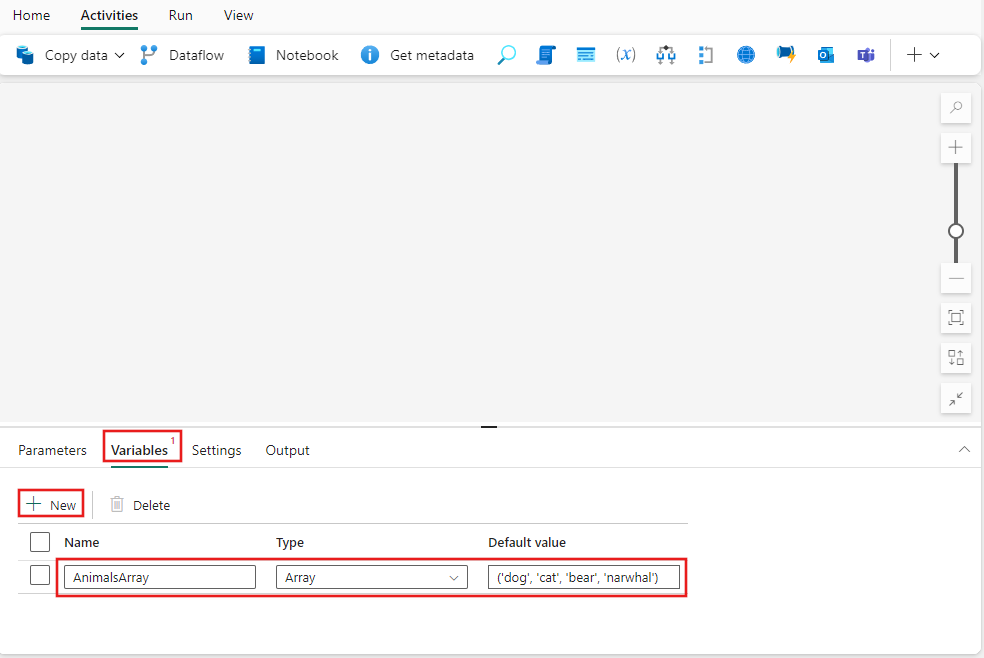
Search for Filter in the pipeline Activities pane, and select it to add it to the pipeline canvas. You may need to expand the full list of activities by selecting the + button to the far right of the toolbar.
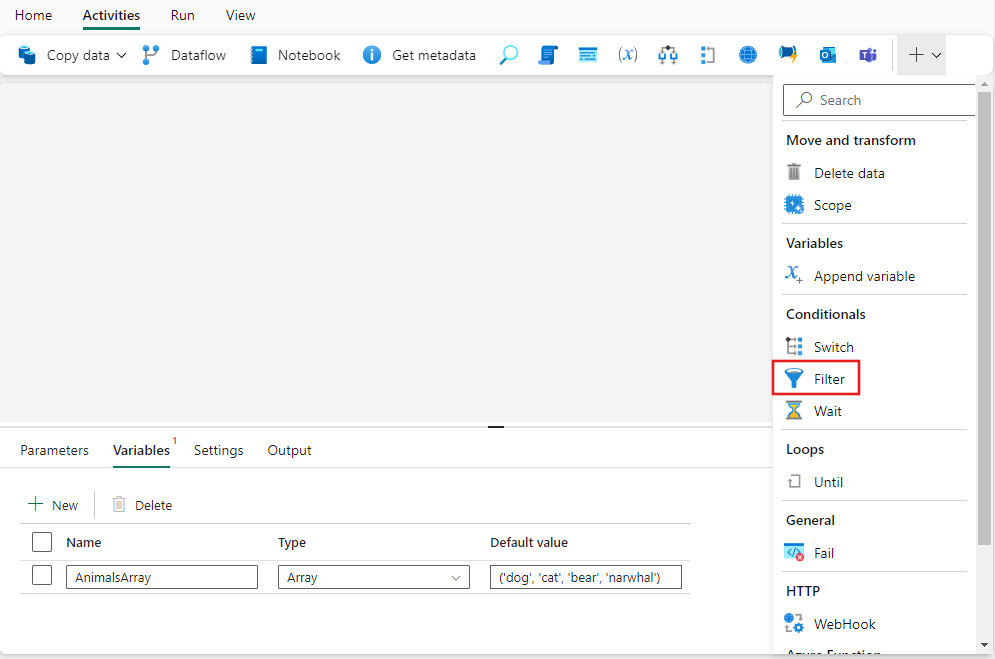
Select the new Filter activity on the canvas if it isn't already selected.
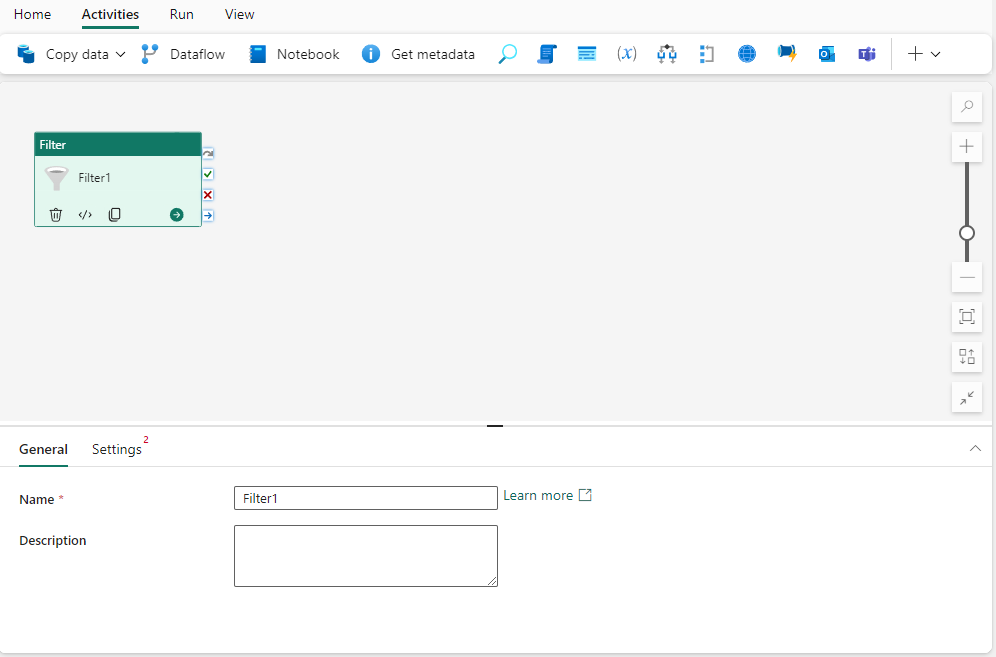
Refer to the General settings guidance to configure the General settings tab.
Filter settings
Select the Settings tab, where you can provide an array list of Items and a Condition to be applied to each item. Both settings support dynamic content.
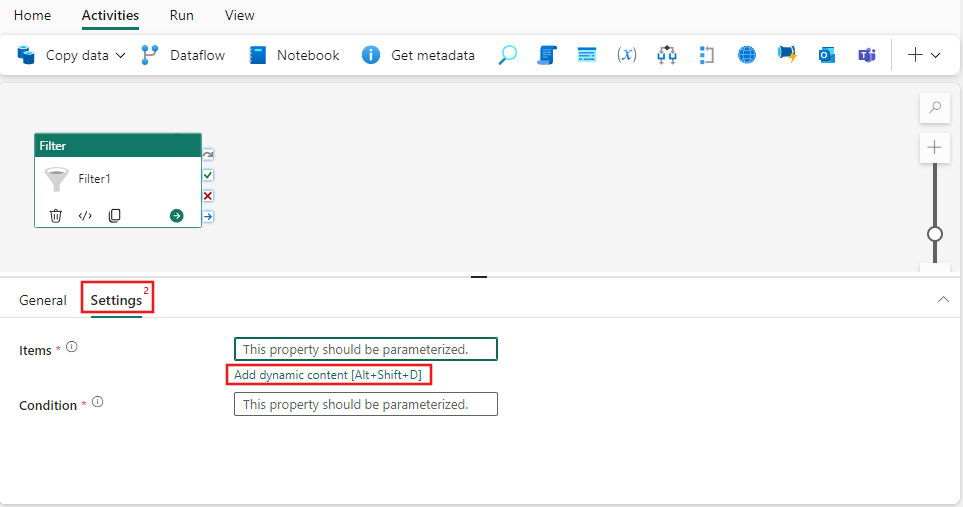
This simple example filters the array to dog, but a real world use can be as complex as necessary, using any of the functions and values available in the dynamic expression builder. Select Add dynamic content for the Items, and then select the Variables tab in the Pipeline expression builder, and choose the previously created AnimalsArray. Then select OK.
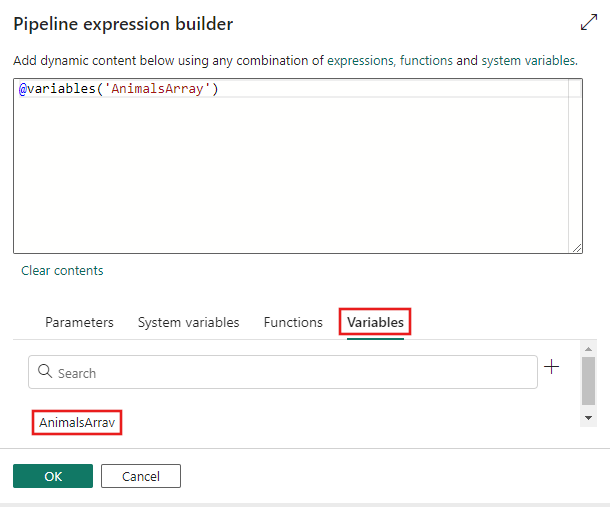
Select Add dynamic content again, this time for the Condition setting. The item() expression returns the value of the current item as the Filter activity iterates through the provided list of array items. Using the equals() function, we can compare it against the item to return true or false for each item. Only items that return true will be included in the output array of the Filter activity, which can then be used in any other activity.
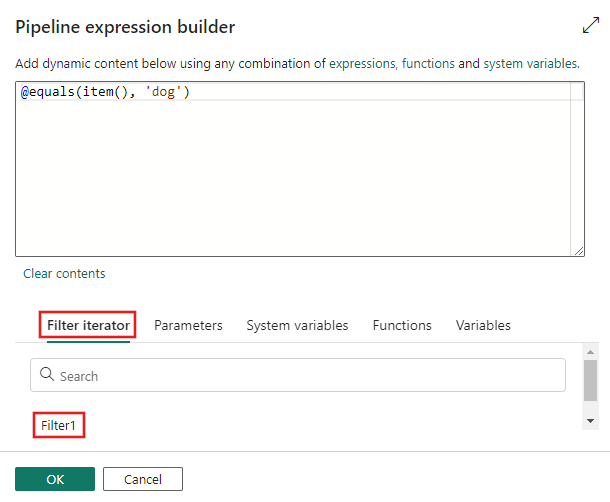
Save and run or schedule the pipeline
After adding any additional necessary activities using the output array of the Filter activity, switch to the Home tab at the top of the pipeline editor, and select the save button to save your pipeline. Select Run to run it directly, or Schedule to schedule it. You can also view the run history here or configure other settings.
